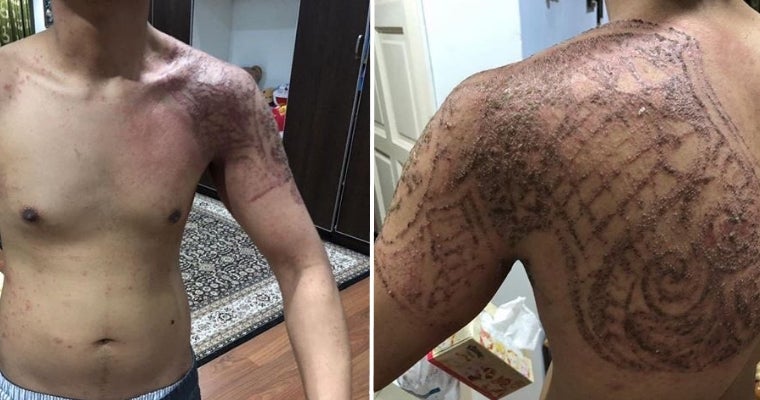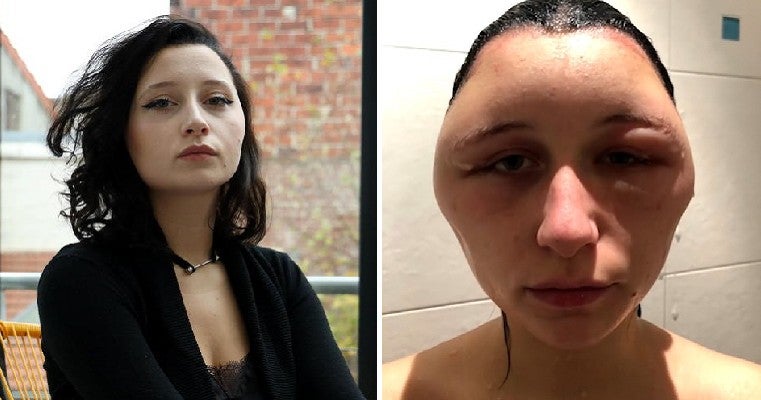If you’ve ever walked around KL, most of you may have seen places offering “henna” tattoos. Many people view them as safe, temporary tattoos, with many getting them just for the aesthetic.
However, a netizen, who wishes to remain anonymous, has gone on Twitter with a warning, shocking people as he reveals that certain henna tattoos might not be suitable for some people.
“Please make sure you’re not allergic to any kind of henna before putting it on your skin (if you don’t want to suffer),” he wrote, including several pictures of his torso to show how he had gotten a large henna tattoo that stretched across his left shoulder and shoulder blade.
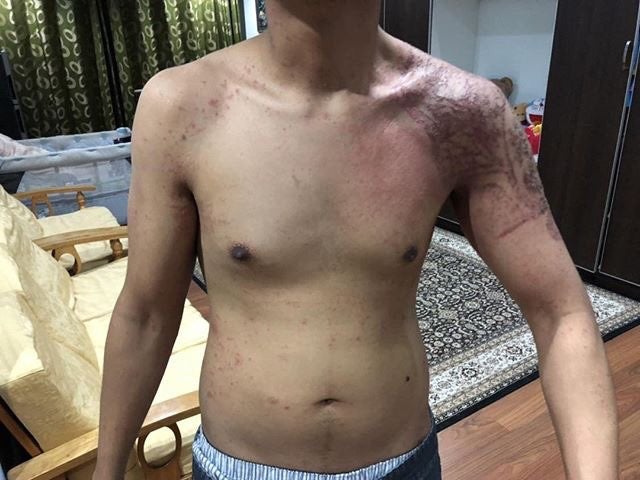
Source: twitter
It would appear that instead of the henna fading off gradually, his skin had blistered and violently broke out into hives in the exact pattern of the henna, resulting in the strange result of a horrific-looking rash.
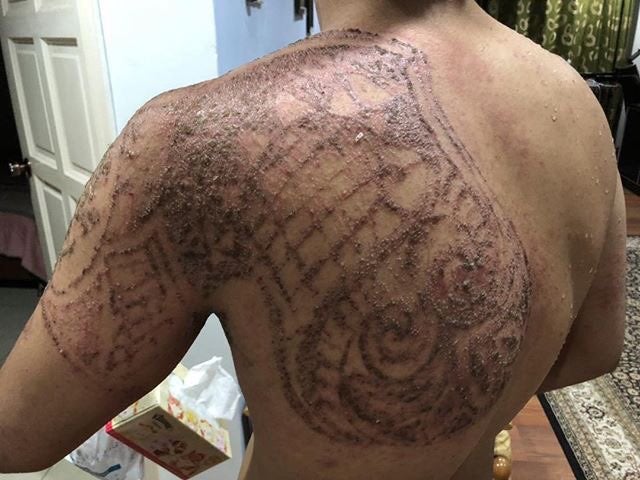
Source: twitter
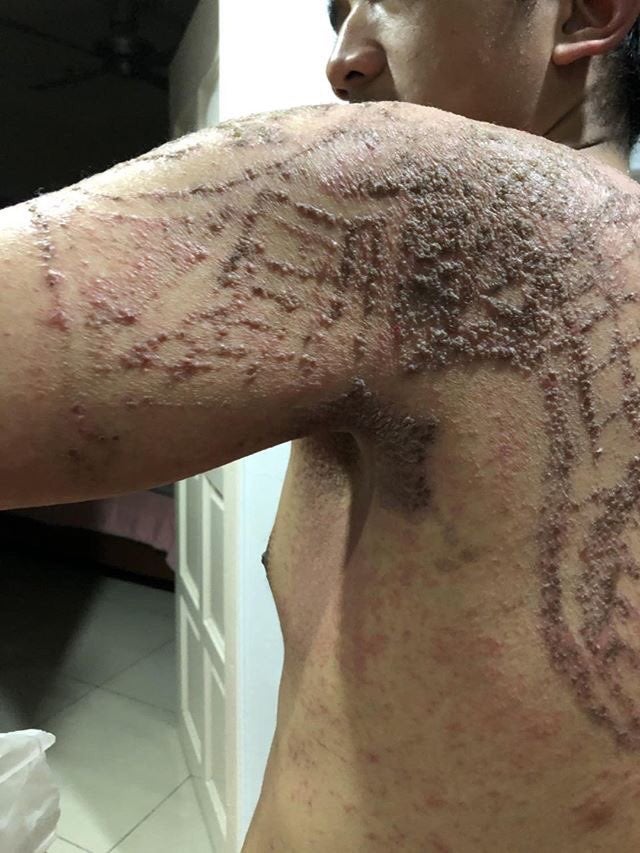
Source: twitter
“The doctor said it was very interesting, she will present this case in Malaysia’s dermatologist conference,” he continued.
He also added,
“I’m gonna say this again. For those who don’t know, henna = inai. This is NOT a tattoo.”
While permanent tattoos are forbidden in some religions, henna tattoos don’t really count as they’re temporary, so they’re sometimes referred to as “halal” tattoos.
Henna, a dye made from the leaves of the hina/henna tree, is an art form that dates back over 5,000 years in the Middle East, India, Africa, and Pakistan. Long used in self-expression, henna is also used to celebrate weddings and birthdays.
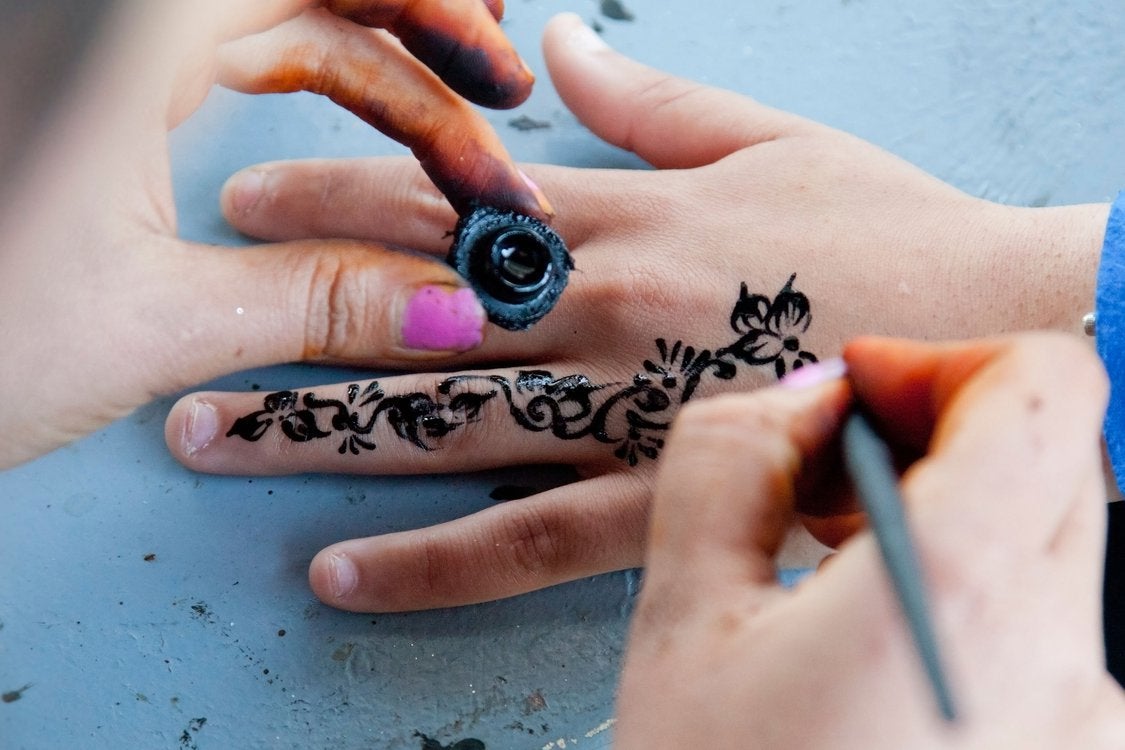
Source: nhs. Uk
But while traditional “red” henna is natural and safe, modern artists may use black henna, many of which may be contaminated with unlisted chemicals and dyes. P-Phenylenediamine (PPD) being the most notorious of these, staining skin black but possibly causing allergic reactions and permanent scarring. PPD can even cause anaphylaxis, a severe allergic reaction that can lead to death.
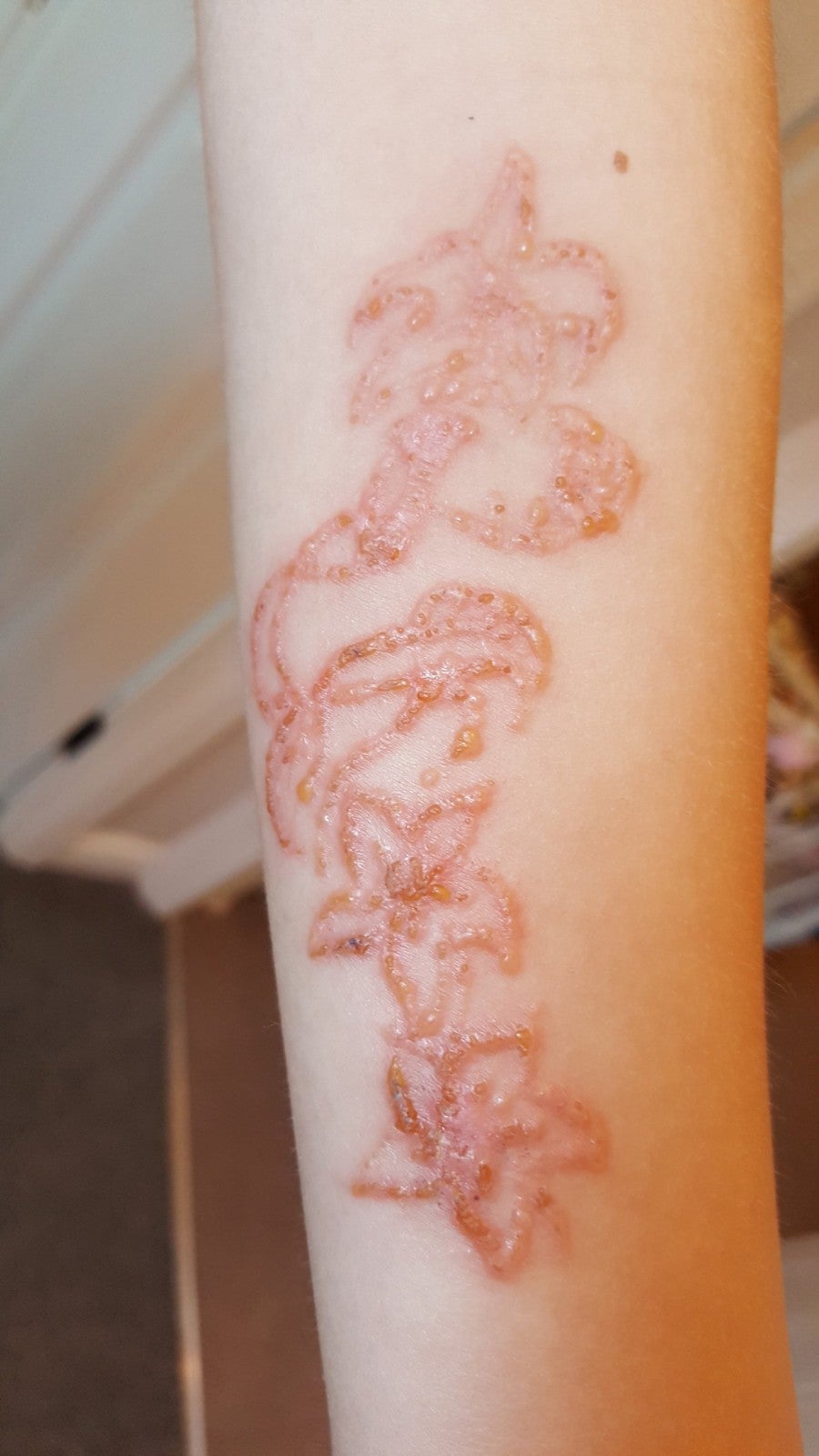
Source: metro uk
Use of PPD black henna is popular in tourist areas, since the blistering happens only two to three days after the application, meaning many tourists don’t get a chance to come back and complain. The high-profit margins of black henna only encourage the further use of such dangerous dyes.
For more information on how to tell the difference between red and black henna, you can read this guide here.
So, the next time you or any of your loved ones ever pass by a henna stall and feel like getting a tattoo, you may want to think twice.
We wish Anon a speedy recovery. It’s scary that some people can be so irresponsible in their work. Have you ever gotten a henna tattoo? What are some places that are confirmed safe? Let us know in the comments!
Also read: Girl’s Head & Tongue Swell Severely Due to Near-Fatal Allergic Reaction to Hair Dye

